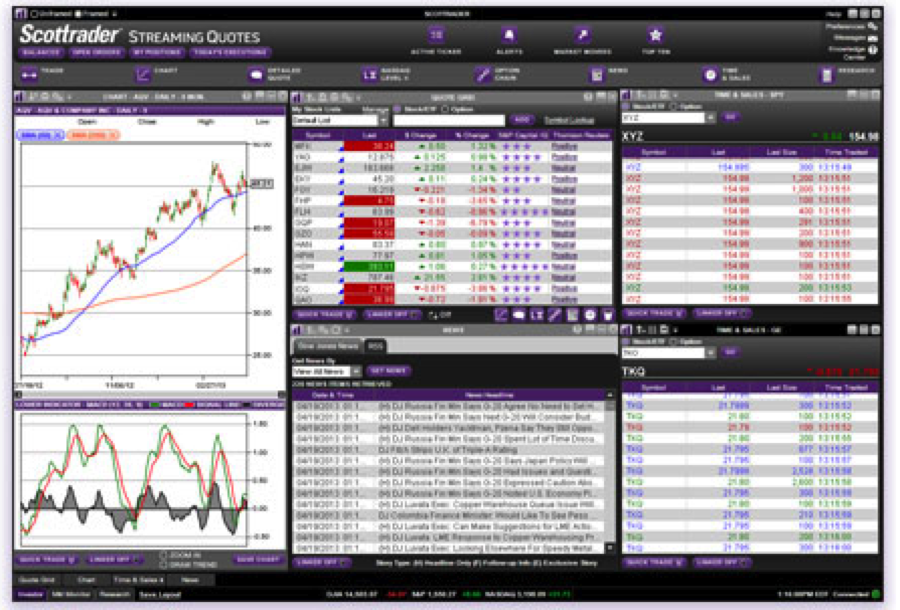Dividends How do they work (bond Scottrade broker mutual funds) Investing stocks bonds
Post on: 5 Май, 2015 No Comment

Just curious how this works.
So, you buy a stock and when the dividend date comes you get a dividend? How does that money get to you?
Also, what prevents people from buying the stock the day before the dividend and selling the day after?
Thanks!
Good questions. Generally, you would buy a stock in a brokerage account. The shares are held in street name, which just means the brokerage firm is the custodian for the shares.
There are basically two options if you own stock in a brokerage account and that stock pays a cash dividend. A) the money can be paid to the cash core of the account, and B) the money can be reinvested to buy additional shares. As a variation on A), your brokerage firm might let you arrange to be sent the dividend as a check or ACH transfer to a bank account. As for option B), this isn’t always available (you’d have to check with your brokerage firm), but if it is you’ll probably be owning fractional shares (like with a mutual fund).
There are also DRIP programs — dividend reinvestment programs — but these are initiated through the company and transfer agent, not through a brokerage firm.
As for buying the stock, getting the dividend, and selling, it doesn’t work out that way due to the Ex-dividend. Basically, you have to own the shares on the Record Date — and that means you have to purchase it at least three days before the Record Date.
So let’s say a stock is paying a dividend on Friday December 19th. The company might set the Record Date as Friday December the 5th. Since settlement is three days, you have to have bought the stock by the end of the trading day on Tuesday December 2nd. If you wait and buy it on Wednesday December 3rd, you won’t be the official owner of the stock until three business days later, or Monday December 8th, so you won’t be the owner of record on Record Date.
So why wouldn’t somebody just buy on the 2nd and sell on the 3rd? That’s where Ex-dividend comes in. The Ex-dividend date is two days before the Record date, or Wednesday December 3rd. The stock price is REDUCED by the amount of the dividend first thing in the morning on this date. That doesn’t mean the stock won’t finish the day higher than it was on Tuesday, it just means it will have downward pressure equal to the amount of the dividend. So you can sell on the 3rd, but everything else being equal, you’re selling at a lower price, so you’re trading a dividend for a lower share price.
Similarly, if you own the stock and want to get out before the price goes down due to Ex-dividend, you have to sell by Tuesday the 2nd — but you lose the dividend.
Mutual funds (stock and bond) work somewhat differently but similarly as far as Ex-dividend. I attached an image of a fund with extremely regular price movements. You can clearly see the Ex-Dividend each month for this bond fund.














